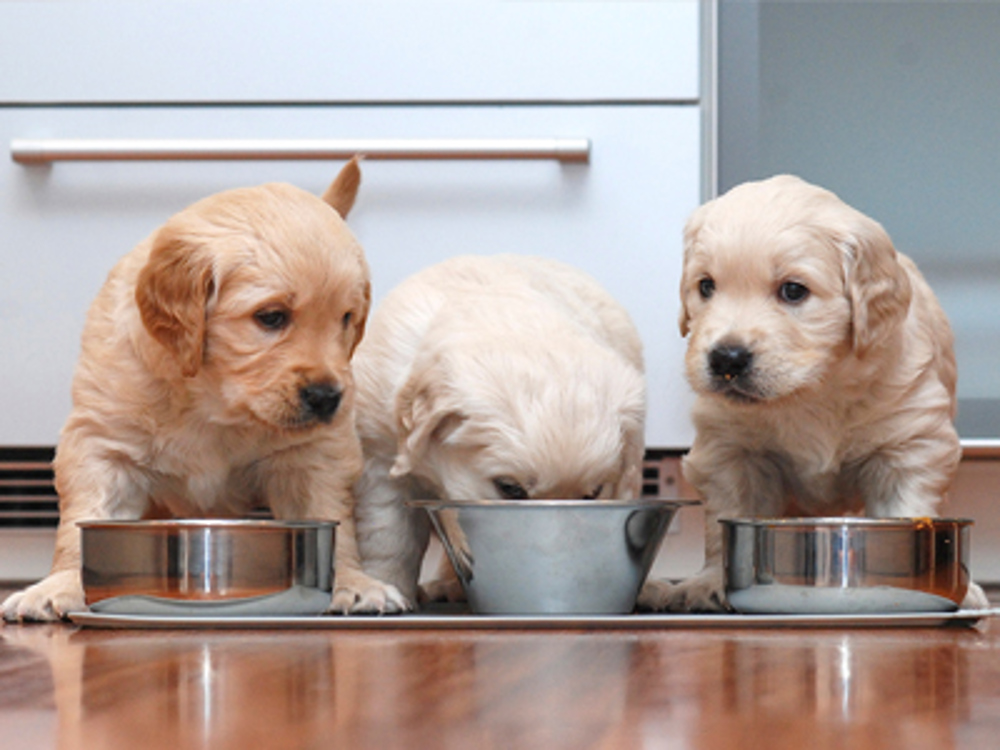
What is digestive health?
The digestive system is a 24/7 safeguard for your dog. Did you know that 70% of your dog’s immune cells are found in here? They protect their body from toxins and create a barrier between your dog and the harmful microbes of the outside world, stopping dog illnesses. It also has the crucial job of absorbing nutrients from food, converting them into energy, and excreting anything indigestible.
It’s important that balanced dog nutrition begins in puppyhood. Puppies must develop good digestive health early so they have the nutrients they need to grow up strong and healthy.
To maintain their health, puppies need three times more calories per kilogram of food than adult dogs. They also need more vitamins, protein and minerals. Nutrition is an important part of their health and vitality no matter what their size, so to give your puppy a good start in life, provide them with a food for their young digestive system.
Digestion as they grow
In their first five months, your puppy's natural defences won’t be fully matured yet, so they are more susceptible to things like stomach upsets. Good dog health care during this period can make all the difference to having a strong and healthy adult dog for years to come.
When your dog is older than 5 months, they may still need support for their digestive system for a number of reasons. There are many reasons why your dog might develop an upset.
Spot the signs of delicate digestion
If you think that you dog may have delicate digestion, keep an eye on them to see if they display any unusual symptoms. There are two main things to look for:
The stools are frequently soft and poorly formed
Occasional diarrhoea and loose stools are a natural sign of microflora imbalance. However, when it is more frequent, it might be a food intolerance or allergy. If you are concerned, visit your vet to get your dog examined.
They have a bad reaction to a new diet
When you change your dog’s diet, it’s best to do it gradually, as switching dog food quickly rather than gradually can lead to temporary upsets. However, if even a slow change leads to flatulence and/or diarrhoea, it might be a sign that your dog is not tolerating their new diet.
